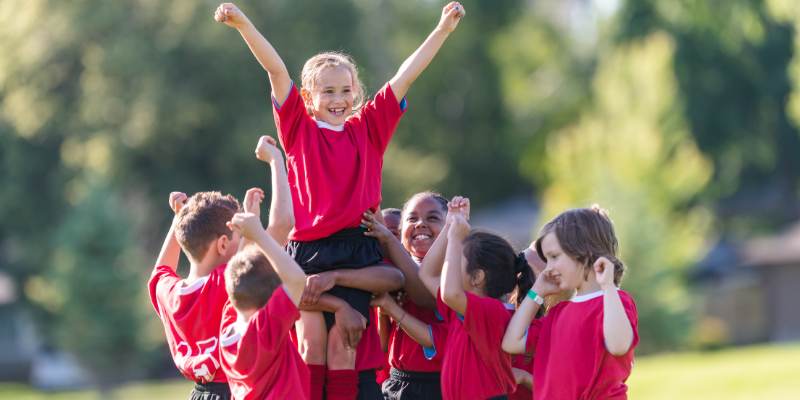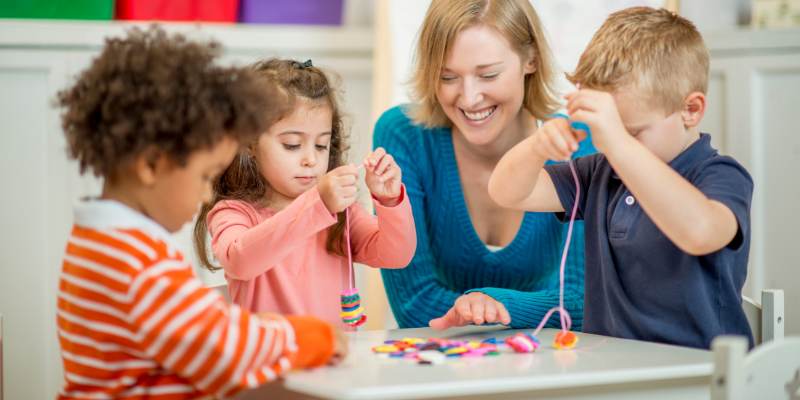Why Outdoor Play Is Essential: 10 Key Benefits For Kids
In today's digital era, children spend more time indoors than ever, often glued to screens and missing out on essential outdoor play. Playing outside is more than just fun—it is a crucial part of childhood development. Research shows that children who engage in outdoor activities experience better physical, mental, and emotional well-being. From enhancing motor skills to fostering creativity and social skills, outdoor play is a fundamental aspect of growing up.
This article explores 10 key benefits of outdoor play for kids, showing why parents and educators should prioritize outdoor activities for a child's healthy development.
Boosts Physical Health and Fitness:
Outdoor play keeps children active, helping them develop stronger muscles, bones, and cardiovascular health. Running, jumping, climbing, and playing games like tag or soccer improve coordination, flexibility, and endurance. Regular physical activity reduces the risk of childhood obesity, a growing concern worldwide. Unlike structured indoor exercises, outdoor play allows for free movement, encouraging children to naturally explore and challenge their physical limits.
Children who play outside also develop better posture and body awareness. Skipping, hopping, and balancing contribute to better core strength and overall physical fitness. Moreover, exposure to sunlight helps regulate sleep patterns by promoting the production of melatonin, a hormone responsible for sleep regulation.
Strengthens the Immune System:
Playing outside exposes children to fresh air, sunlight, and natural environments, contributing to a stronger immune system. Sunlight is a natural source of vitamin D, essential for bone development and a healthy immune response. Studies indicate that children who spend more time outdoors are less likely to suffer from autoimmune diseases and seasonal illnesses.
Exposure to nature also helps kids develop resistance to common allergens. When children play in the dirt, grass, and sand, they come into contact with different microbes that strengthen their immune defenses. This natural exposure helps build resilience against infections, reducing the risk of frequent colds and other common childhood illnesses.
Encourages Social Skills and Teamwork:
Outdoor play naturally promotes social interaction as children engage in group activities, games, and imaginative play. These interactions enhance communication skills, cooperation, and problem-solving abilities. Whether working together to build a fort, playing a team sport, or negotiating rules for a game, children learn essential life skills such as sharing, leadership, and conflict resolution.
Additionally, unstructured outdoor play allows children to develop emotional intelligence. They learn to navigate different social situations, express their feelings, and understand others' emotions. This ability to engage with peers helps build strong friendships and improves overall emotional well-being.

Improves Mental Well-Being and Reduces Stress:
Time spent in nature has been linked to lower stress levels, improved mood, and reduced anxiety in children. Outdoor activities encourage mindfulness and relaxation, helping kids feel more balanced emotionally. Research suggests that spending time in green spaces lowers cortisol levels, the hormone responsible for stress, and boosts overall mental well-being.
Children who play outdoors regularly tend to have fewer symptoms of depression and anxiety. The open environment, fresh air, and physical movement contribute to a sense of freedom and happiness, making them feel more relaxed and mentally refreshed.
Enhances Creativity and Imagination:
Unlike structured indoor play, outdoor environments offer open-ended possibilities, allowing children to create games and explore their surroundings. Whether they build castles in the sand, pretend to be superheroes, or collect leaves and rocks, unstructured outdoor play nurtures creativity and problem-solving skills.
Exposure to different textures, sounds, and natural elements stimulates a child's imagination. They learn to think outside the box, use their surroundings creatively, and invent new play methods. This form of play encourages independent thinking and innovation, which are valuable skills for the future.
Improves Motor Skills and Coordination:
Outdoor activities such as climbing, running, cycling, and balancing on uneven surfaces develop fine and gross motor skills. They also enhance coordination, agility, and spatial awareness, which contribute to better movement control and balance.
Playing with outdoor equipment like swings, seesaws, and monkey bars strengthens muscle groups and improves dexterity. Children who engage in active outdoor play develop better hand-eye coordination, reaction times, and reflexes, which benefit them in sports and daily activities.

Increases Focus and Cognitive Development:
Outdoor play has been linked to improved concentration and cognitive function. Time spent outside helps reset a child's attention span, making it easier to focus on tasks when they return indoors. Research shows that children with ADHD (attention deficit hyperactivity disorder) benefit from outdoor activities, as natural environments help reduce hyperactivity and increase mental clarity.
Outdoor experiences also enhance problem-solving skills. Whether navigating a climbing structure, figuring out how to cross a stream, or working on a group project, outdoor play challenges their thinking abilities and strengthens cognitive flexibility.
Promotes Independence and Decision-Making:
When children play outside, they learn to navigate challenges, take risks, and make decisions independently. Whether they decide how to climb a tree, cross a stream, or solve a game-related problem, outdoor play fosters independence and critical thinking skills.
These experiences build resilience, confidence, and adaptability—essential traits for personal growth. Children who regularly engage in outdoor play are more likely to become confident decision-makers and handle challenges effectively in adulthood.
Encourages a Love for Nature and the Outdoors:
Kids who engage in outdoor activities develop a stronger appreciation for nature. They learn about plants, animals, seasons, and ecosystems through direct experience. This connection with the environment fosters a sense of responsibility toward nature and promotes eco-friendly habits such as recycling, conservation, and respect for wildlife.
Children who spend time outdoors are more likely to become environmentally conscious adults. Early exposure to nature encourages a lifelong interest in outdoor activities such as hiking, gardening, and wildlife observation.
Supports Emotional Regulation and Self-Confidence:
Outdoor play allows children to express themselves, experiment with different activities, and overcome challenges. When they accomplish something—like learning to ride a bike, climbing a tree, or winning a race—it boosts self-confidence and self-esteem.
Overcoming small outdoor challenges also helps kids develop emotional resilience. They learn how to manage frustration, fear, and excitement in a balanced way. These experiences teach children that failures are temporary and that persistence leads to success, helping them develop a growth mindset.
Conclusion
Outdoor play is more than just a way to pass time—it's a crucial aspect of childhood that supports physical, mental, emotional, and social development. From improving fitness and immunity to enhancing creativity and emotional resilience, the benefits of outdoor play are undeniable.
Parents and educators must actively encourage children to spend more time outdoors through playground activities, nature walks, or outdoor sports. By fostering a habit of outdoor play, we set children up for a healthier, happier, and more balanced life.











